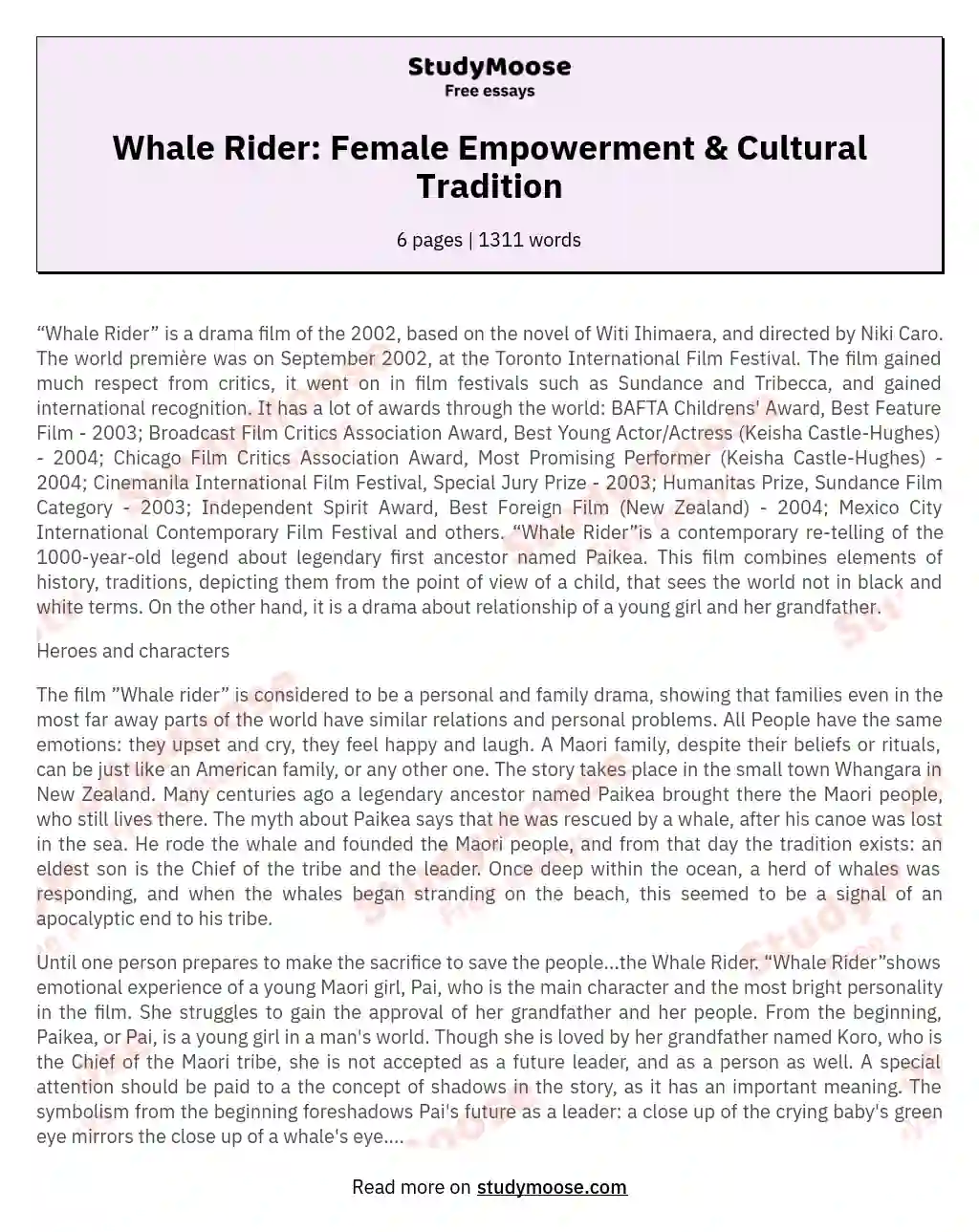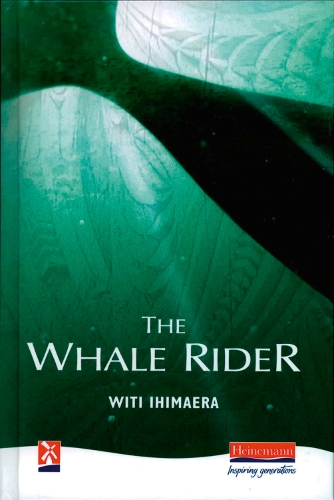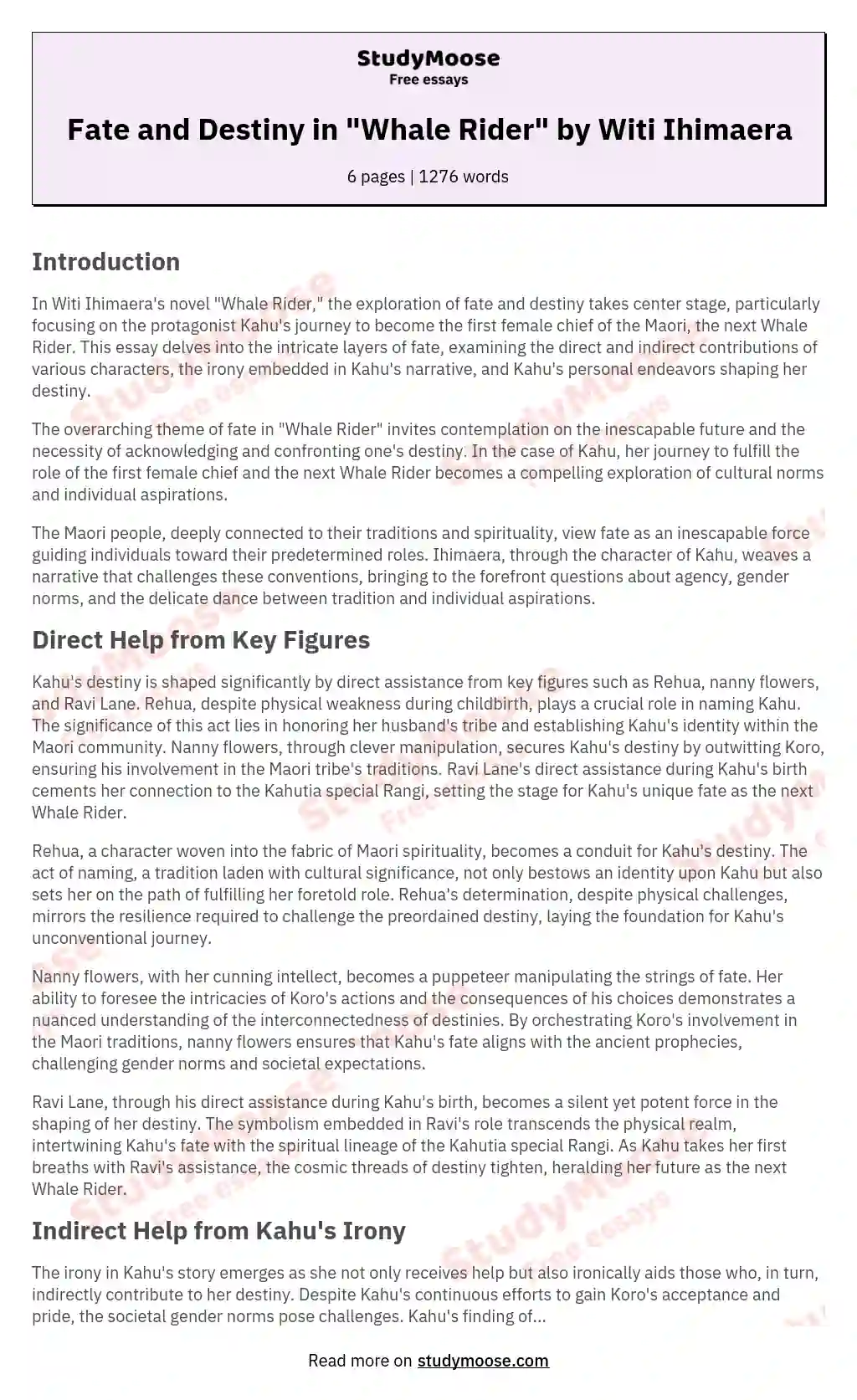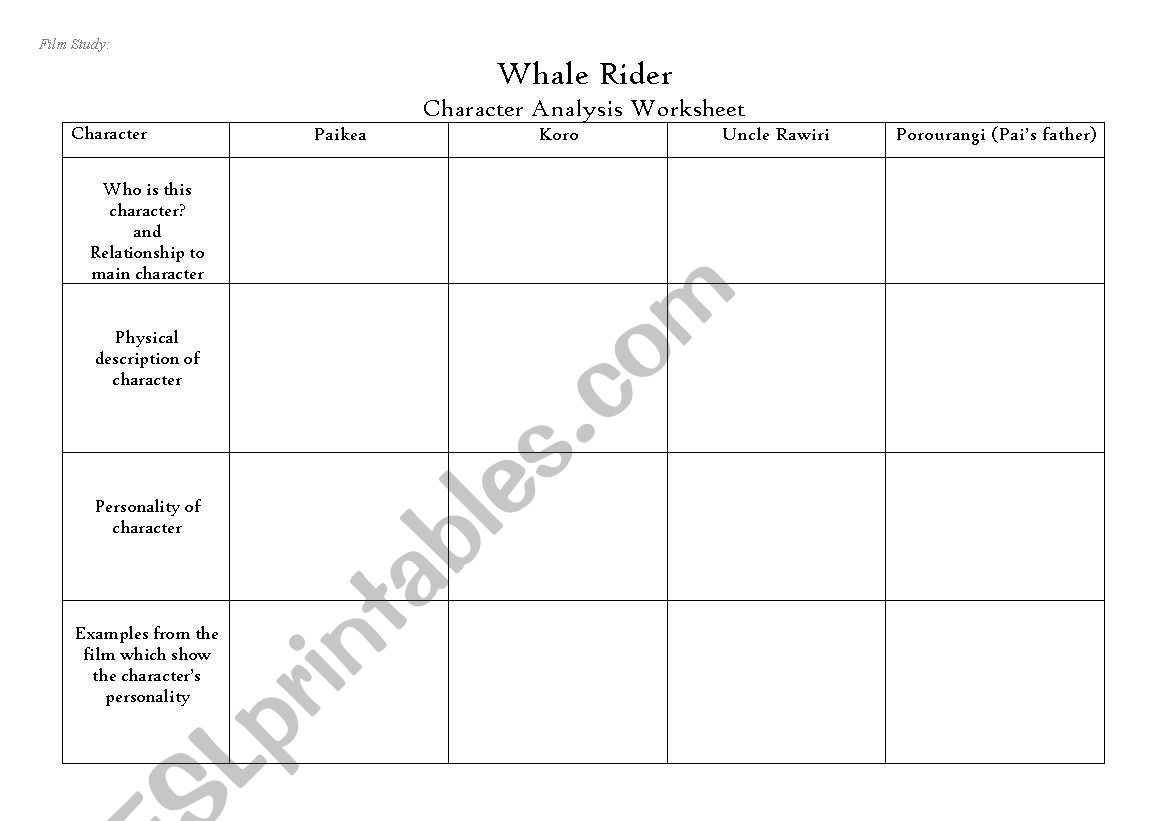"Whale Rider" is a 2002 film directed by Niki Caro, based on the 1987 novel of the same name by Witi Ihimaera. The film tells the story of a young Maori girl named Pai, who struggles to prove her worth and fulfill her destiny as the leader of her tribe, despite being born into a patriarchal society that denies her the right to succeed her grandfather as chief.
One of the key themes of "Whale Rider" is the conflict between tradition and change. Pai's grandfather, Koro, is a staunch traditionalist who strongly believes in the importance of maintaining the customs and rituals of their people. He is deeply opposed to the idea of a female chief and refuses to accept Pai as his successor, even though she is the only remaining member of the tribe's royal line.
However, Pai is determined to prove her worth and follow her calling as the leader of her people. She is a strong-willed and intelligent young woman who is deeply connected to her culture and traditions, but she is also willing to challenge the status quo and fight for what she believes in. Throughout the film, we see Pai struggling to balance her respect for her culture with her desire to break free from the constraints of tradition and pave her own path.
Another key theme of the film is the importance of cultural identity and the struggle to preserve traditions in the face of modernization and assimilation. The Maori people have a rich and ancient culture with a strong sense of community and connection to the land, but they also face the challenges of living in a modern world that often threatens to erode their traditions and way of life.
In "Whale Rider," we see this conflict play out through the character of Pai and her relationship with her grandfather. Koro is deeply concerned with preserving the traditions of their people, but he is also resistant to change and unwilling to consider alternative viewpoints. Pai, on the other hand, is more open to new ideas and ways of thinking, and she is determined to find a way to reconcile the old and the new.
Overall, "Whale Rider" is a powerful and poignant tale about the importance of cultural identity and the struggles of tradition and change. It tells the story of a young woman who refuses to let the constraints of a patriarchal society hold her back, and who fights to prove her worth and follow her destiny as a leader. Through its complex and nuanced portrayal of its characters and themes, the film offers a thought-provoking exploration of the timeless struggles of tradition and change, and the power of the human spirit to overcome adversity.
Whale Rider movie review & film summary (2003)

When the young boys are training with Koro to hopefully become the next descendent to be leader of the tribe, Pai is still not allowed to take part in the events. Instead, Part I begins by refocusing on the herd of whales. It is not only a conflict because it is tragic, however, it is a conflict because the grandfather of the boy who died at childbirth believed he was the next chief. Part II begins with another short focus on the whale herd. At school, she is the most interested in Paikea culture and origins, unlike the other boys. So the two young fellows set to work. The creation myths power permits the courageous woman, Pai, to find her actual calling as a real leader of the Maori tribe.
Free Essay: Niki Caro's Whale Rider

She leads a group of young girls in a traditional dance and also recites a speech she wrote in the Maori tongue. He thinks back to his time with the rider, and how the rider flung spears of bounty and how one spear cut through time and landed in the future and then he understands—this girl is that last spear. Although he does end up going with the family, during the reception itself, she publicly compares him to a stray dog. The story returns to For three days Kahu was gone and presumed dead, but then they found her unconscious floating in the ocean, with dolphins as her guards and kelp as her bed. This is not just racism coming from nameless faces; his best-friends parents—the very people hosting him in the country and benefiting from his work--look down on him because of his race. The biggest whale, the founder of Maori culture, has a special relationship with the whale rider, a young man who sits upon its back. Rawiri himself says you have to keep fighting against nature, and as soon as you stop, it will reclaim all of this.
The Whale Rider Epilogue Summary and Analysis

There are three different types of journey; they are inner, physical and imaginative. Then, when the boys fail the final test of recovering the whale tooth, which Koro threw into the sea, and she succeeds and knows that she is special. Cowperthwaite uses pathos in order to signify that Dawn died horribly doing what she was passionate about and her former co-workers get emotional when they talk about her. Koro recognizes in this event a spiritual warning to him and his people; their test is to return this ancient whale back to sea because they are so connected to this supernatural whale herd that if it lives they live and f it dies they die. Unknown to all, she had won an inter-school speech contest with a touching dedication to Koro and the traditions of the village. However, Kahu demonstrates a host of leadership characteristics, all of which Koro is searching for. .
Analysis of the Whale Rider Essay Example

The film follows the shocking story of a killer whale named Tilikum and the three human deaths that he is responsible for. She has used a number of cinematic techniques in this film to create atmosphere and sometimes show what the character is feeling. He is the grandson of Koro and thus the uncle of Kahu. As a young woman myself, I can feel empathy towards the main protagonist, Pai, as she puts maximum effort in convincing her grandfather Koro Analysis Of The Film Whale Rider Throughout the film Whale Rider, many characters address the ancient custom that only males can ascend to chiefdom in the Maori tribe. GradeSaver, 6 April 2015 Web. Pai herself is interested in the leadership, learning traditional songs and dances, but is given little encouragement by her grandfather. After being told for so many years that she is worthless because she is a girl, Pai is also struggling to find acceptance and love.








